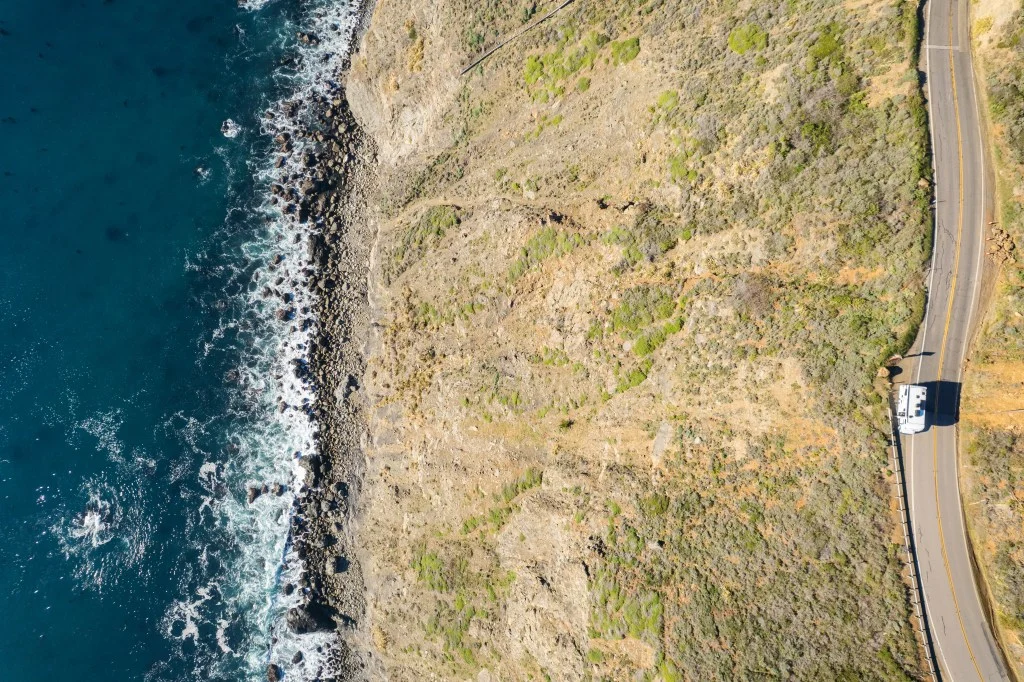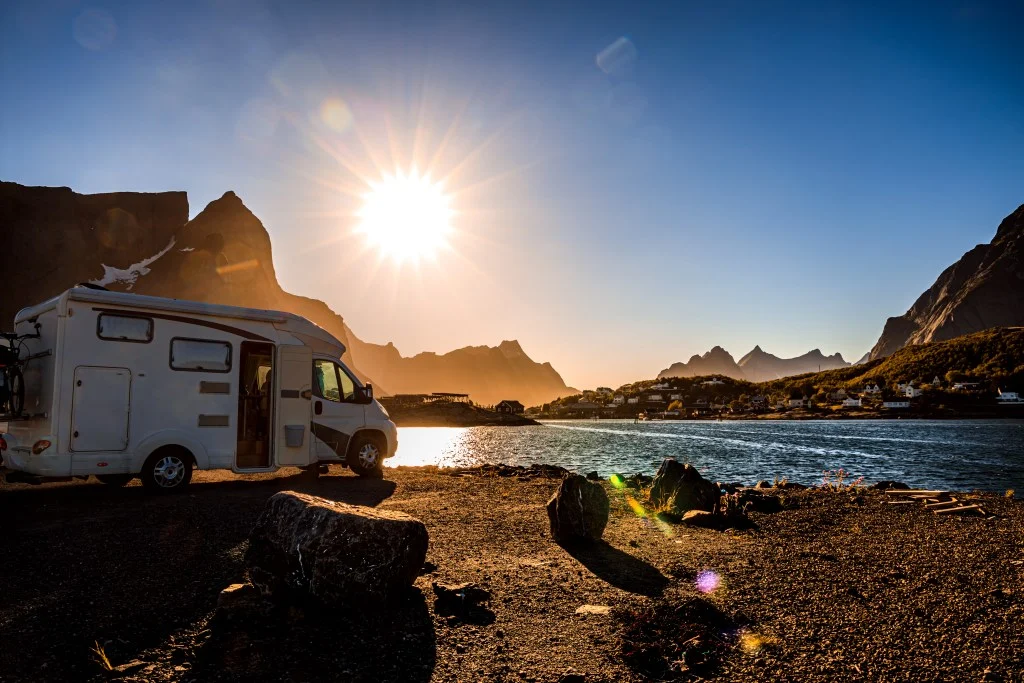RVing can be full of adventure and excitement. However, sometimes it’s exciting for all the wrong reasons. You may not realize it, but you could be risking your life while RVing. If you’re not careful, you could put yourself, your loved ones, and others in danger. You can never take safety too seriously while traveling.
Today, we’re looking at five common ways RVing can risk your life. Keep reading if you want to increase your safety while RVing. Let’s dive in!
Is Driving in an RV Safe?
If you take the proper precautions, driving in an RV can be as safe as driving in any other vehicle. However, the larger the RV, the riskier it can be. Larger rigs have a much longer stopping distance and a small margin of error in certain circumstances. Tight maneuvers and blind spots can be exceptionally more challenging for RVers.
If you want to maintain your safety while RVing, keep up with your rig’s routine maintenance and be a safe driver. You should wear your seatbelt, check your mirrors, and keep plenty of distance between you and other vehicles. If you have a lead foot, keep your speed in check. While accidents in an RV are rare, they can be more dangerous due to their bulkiness.
Each year, RV-related accidents injure approximately 75,000 people. However, RV accidents are typically safer than other vehicles. Standard vehicles have an accident fatality rate of 1.48 deaths for every 100 million vehicles. However, the fatality rate for RVs is 0.44 deaths per 100 million vehicles.
How Common Are RV Accidents?
There are much fewer RV accidents than passenger vehicle accidents annually. However, while RVs have become trendy recently and dealerships have struggled to keep up with demand, there are still fewer RVs on the road than passenger vehicles.
There are more than 500,000 RV-related accidents yearly. The highest reasons for RV accidents are inexperienced drivers, speeding, weather conditions, and loading an RV with too much weight.

5 Ways RVing Can Risk Your Life
There are a handful of ways you could be risking your life while RVing. To stay safe, minimizing these dangerous activities is essential. Let’s get started!
1. Propane Leaks or Explosions
Most RVs use propane to help cool refrigerators and freezers, produce heat in furnaces, and create cooking surfaces in the blink of an eye. However, propane can be incredibly hazardous. If you smell propane in or around your RV, there’s a good chance there’s a leak somewhere in your propane system. A propane leak is severe, and you should take action immediately.
The first thing you should do is to shut off the propane supply. If the propane smell is strong inside your RV, you should open the windows, doors, and vents to get fresh air into your rig. Get outside and away from your RV until clean air has circulated throughout your RV.
You should then contact a professional to inspect and address the leak. We do not recommend DIY propane repairs as the risks are too high.
2. Driving in High Winds
Driving a standard passenger vehicle on a windy day can be challenging. The wind can push you from one side of the road to the other. Extreme wind can be very hard on drivers of any vehicle. However, it doesn’t take harsh winds to create a risky situation for RVers.
Depending on the size of your RV, you’ll start to feel the effects of high winds when they hit 10+ miles per hour. Drivers can experience increased trailer sway levels as the gusts increase. When they get to 25+ miles per hour, it can create trouble, especially if there are more excessive gusts.
Wind gusts of 40+ miles per hour have the potential to do severe damage to an RV, including flipping it on its side. It’s a good idea to keep an eye on the wind forecasts leading up to travel days. You may need to delay your trip or make other arrangements because of the wind.

3. Boondocking in Unsafe Places
While there are many reasons to love boondocking, it’s not always safe. You should always extensively research boondocking locations. Some locations could be hotbeds for seedy activity, and others may have safety issues or concerns about access. You need to know that you and your rig can safely navigate roads in and out of a location. If not, you could be in danger.
We recommend using apps like Campendium and iOverlander to find safe boondocking spots. Users on these apps do a fantastic job reviewing sites and providing tips for access. Users are typically swift to pinpoint locations with safety concerns.
Pro Tip: If you want to give boondocking a try, make sure you know these 22 RV Boondocking Tips.
4. Camping in Inclement Weather
We mentioned driving in high winds, but you don’t have to drive in inclement weather to risk your life while RVing. Nature can be unpredictable, and weather conditions can change with little notice. It’s best always to have a weather radio and ensure you can stay connected to receive weather alerts.
Whether it’s a severe summer storm or blizzard-like winter conditions, you want to be aware of any potential inclement weather. Having a heads-up can give you time to prepare yourself and your rig for whatever nature throws your way. Luckily, RVs have wheels, and you can often consider moving to a location away from the chaos.

5. Bad Drivers
Staying safe while RVing means being aware of other drivers on the road. It’s not uncommon to see drivers fiddling with their phones, applying makeup, or enjoying a host of other distractions while driving. Unfortunately, these drivers can pose a significant risk to your life. You must be extra alert for these drivers and do your best to keep your distance.
While you may understand that your massive rig will take considerable space to stop, not all drivers know this. They may cut you off after passing and increase the risk of rear-ending them. You’ll have to adjust while driving your RV to accommodate bad drivers so you can stay safe. Watch for drivers speeding, changing lanes without signaling, or not keeping their distance from you and your rig.
Pro Tip: Make sure to never break any of these 10 Basic Rules Bad Drivers Break (ALL THE TIME).
Is RVing Worth It?
There are some levels of risk to almost every fun and exciting activity, including RVing. However, you can minimize the risks if you take the proper precautions to protect yourself. While you shouldn’t let the hazards of RVing stop you from traveling, you should be aware of them. Ignoring potential risks can cause you to quickly be in over your head and in a dangerous situation. You can have an incredible RVing experience and stay safe simultaneously.
What are your tips for RV safety? Share them in the comments!
Discover the Best Free Camping Across the USA
To be honest with you, we hate paying for camping. There are so many free campsites in America (with complete privacy).
You should give it a try!
As a matter of fact, these free campsites are yours. Every time you pay federal taxes, you’re contributing to these lands.
Become a FREE CAMPING INSIDER and join the 100,000 campers that love to score the best site!
We’ll send you the 50 Best Free Campsites in the USA (one per state). Access the list by submitting your email below: